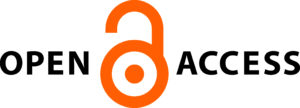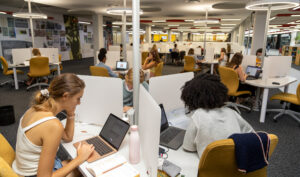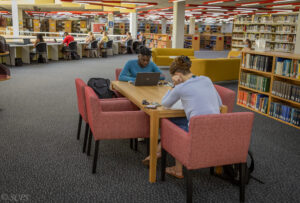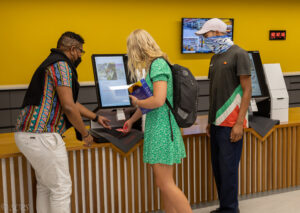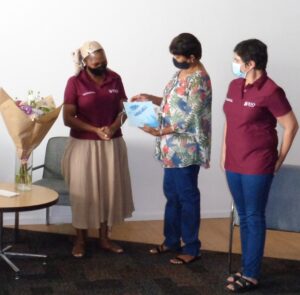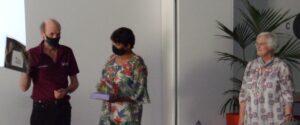
The Library and Information Service received the Justice Edwin Cameron Collection in 2021. The collection is housed as part of the Special Collections of the Library and is now ready to be used by researchers.
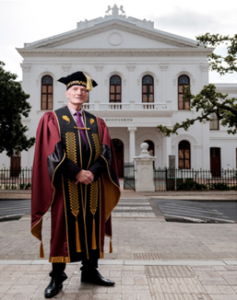 Justice Cameron was installed as Chancellor of Stellenbosch University in 2020. Edwin Cameron SCOB, born 15 February 1953 in Pretoria, is a retired judge who served as a Justice of the Constitutional Court of South Africa. He is well known for his HIV/AIDS and gay-rights activism. President Ramaphosa appointed him as Inspecting Judge of Correctional Services from 1 January 2020.
Justice Cameron was installed as Chancellor of Stellenbosch University in 2020. Edwin Cameron SCOB, born 15 February 1953 in Pretoria, is a retired judge who served as a Justice of the Constitutional Court of South Africa. He is well known for his HIV/AIDS and gay-rights activism. President Ramaphosa appointed him as Inspecting Judge of Correctional Services from 1 January 2020.
Cameron’s early career combined academia and legal practice. Cameron practised at the Johannesburg Bar from 1983 to 1994. From 1986 he was a human rights lawyer at Wits’s Centre for Applied Legal Studies, where in 1989 he was awarded a personal professorship in law. His practice included labour and employment law; defence of African National Congress fighters charged with treason; conscientious and religious objection; land tenure and forced removals; and gay and lesbian equality.
Justice Cameron is an alumnus of Stellenbosch University. In his installation speech he spoke about the “joy of being associated with the University that is so clearly on the way up – up in intellectual output, up in teaching skills, up in research and scholarly publications, up in international renown, up even (though this counts the least) in international ranking. Joy particularly in being able to preside over quite a number of graduation ceremonies over the last two and a half years. It has been an honour to confer degrees and witness elated students graduating, some the first in their families to attend a tertiary institution” (Cameron, 2022).
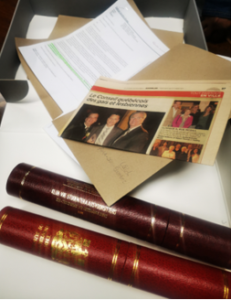 The Cameron collection takes pride of place next to other collections of SU Chancellors such as Frederik van Zyl Slabbert. The collection has been sorted and indexed and an inventory for the collection is available here. The collection contains publications and lectures by Cameron as well as material on his voluntary community service. Importantly, it also contains material on his career and his years as Justice of the Constitutional Court of South Africa. We invite students, researchers and members of the public to peruse this unique collection, which will be formally launched on 6 December this year.
The Cameron collection takes pride of place next to other collections of SU Chancellors such as Frederik van Zyl Slabbert. The collection has been sorted and indexed and an inventory for the collection is available here. The collection contains publications and lectures by Cameron as well as material on his voluntary community service. Importantly, it also contains material on his career and his years as Justice of the Constitutional Court of South Africa. We invite students, researchers and members of the public to peruse this unique collection, which will be formally launched on 6 December this year.
For enquiries on the collection, please contact Ms Marieta Buys, Head: Special Collections (hmbuys@sun.ac.za).
Bibliography:
Cameron, E. 2022. Stellenbosch University deserves to be free from hate and degradation. News24. [Online]. Available from https://www.news24.com/news24/opinions/columnists/guestcolumn/edwin-cameron-our-dignity-demands-we-have-capable-institutions-and-a-capable-government-20220518.
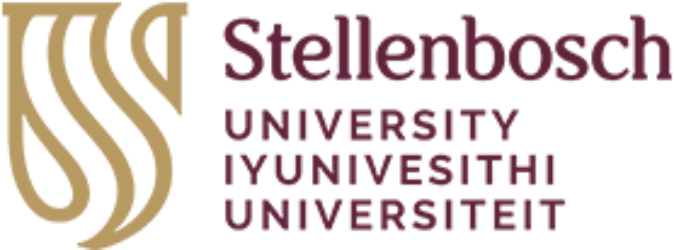
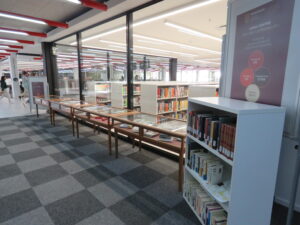 The Library and Information Service hosted a Japanese exhibition in the Stellenbosch University Library. The exhibition, which ran from 8-20 August 2022, formed part of the launch of the Stellenbosch University Japan Centre (SUJC).
The Library and Information Service hosted a Japanese exhibition in the Stellenbosch University Library. The exhibition, which ran from 8-20 August 2022, formed part of the launch of the Stellenbosch University Japan Centre (SUJC).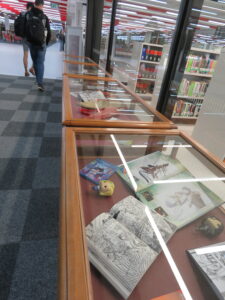
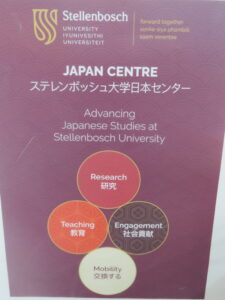 The SUJC has been established to enhance Japan-South Africa relations through i) promoting Japanese Studies at SU, ii) encouraging research and teaching collaboration in all fields of study, iii) hosting educational, cultural and in-person events for the broader community, and iv) engaging with external (e.g. Japanese business sector in SA) and continental stakeholders.
The SUJC has been established to enhance Japan-South Africa relations through i) promoting Japanese Studies at SU, ii) encouraging research and teaching collaboration in all fields of study, iii) hosting educational, cultural and in-person events for the broader community, and iv) engaging with external (e.g. Japanese business sector in SA) and continental stakeholders.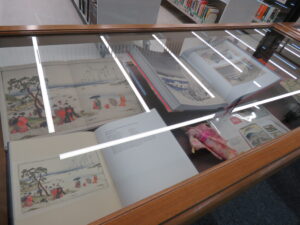 The Japanese exhibition included books on the art, economy, history, politics and social aspects of Japan. Some artefacts were also on display.
The Japanese exhibition included books on the art, economy, history, politics and social aspects of Japan. Some artefacts were also on display.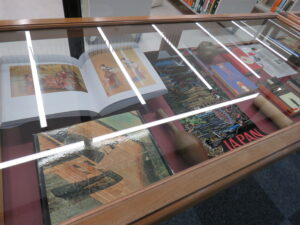
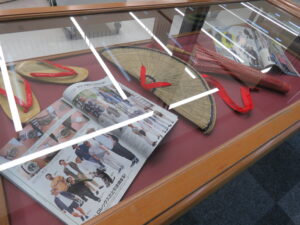
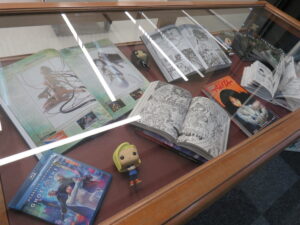
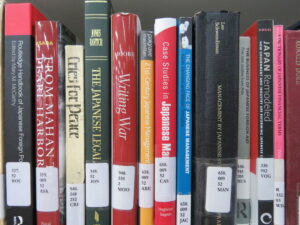
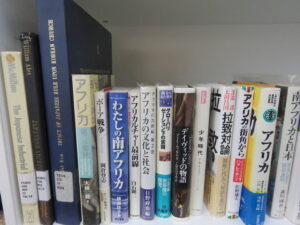
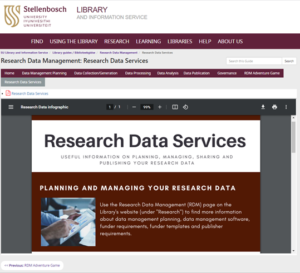 Have you been struggling with certain aspects relating to the management of your research data? Do you need more information about research data management at Stellenbosch University so that you can manage your research data more effectively or so that you can provide better support to the University’s students and researchers? Well, if that is the case you need to look no further than the Research Data Management Library Guide. This is an online information resource that has just been published by the Library and Information Service. The Research Data Management Library Guide provides a wealth of information about several issues relating to the management of research data. The libguide covers the following topics:
Have you been struggling with certain aspects relating to the management of your research data? Do you need more information about research data management at Stellenbosch University so that you can manage your research data more effectively or so that you can provide better support to the University’s students and researchers? Well, if that is the case you need to look no further than the Research Data Management Library Guide. This is an online information resource that has just been published by the Library and Information Service. The Research Data Management Library Guide provides a wealth of information about several issues relating to the management of research data. The libguide covers the following topics: Following the repeal of the remaining national Covid-19 regulations on 22 June 2022 and a statement issued by the Deputy Vice-Chancellor: Social Impact, Transformation and Personnel on 24 June, the Library (SU Library and branches) has decided to implement the following changes:
Following the repeal of the remaining national Covid-19 regulations on 22 June 2022 and a statement issued by the Deputy Vice-Chancellor: Social Impact, Transformation and Personnel on 24 June, the Library (SU Library and branches) has decided to implement the following changes: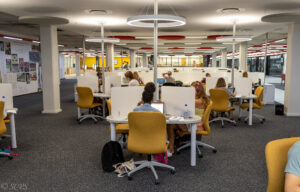 From 27 June 2022, the Library no longer has a limit on the number of clients and the buildings can be filled to capacity. The booking system in most of the Library venues will no longer apply, except at the Makerspace, Auditorium and some group study seminar rooms in the SU Library.
From 27 June 2022, the Library no longer has a limit on the number of clients and the buildings can be filled to capacity. The booking system in most of the Library venues will no longer apply, except at the Makerspace, Auditorium and some group study seminar rooms in the SU Library.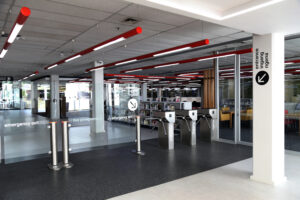 Staff and students are reminded to always be in possession of their SU staff/student cards to access the Library buildings. No access will be granted without these cards.
Staff and students are reminded to always be in possession of their SU staff/student cards to access the Library buildings. No access will be granted without these cards.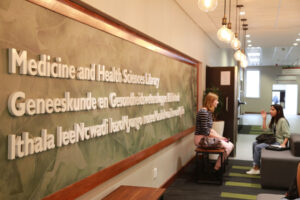 The Library is in the process of implementing a new access system for visitors (such as alumni, prospective postgraduates and school learners). Until the new system is in place visitors do not have walk-in access to the libraries. Visitors, may however, contact
The Library is in the process of implementing a new access system for visitors (such as alumni, prospective postgraduates and school learners). Until the new system is in place visitors do not have walk-in access to the libraries. Visitors, may however, contact 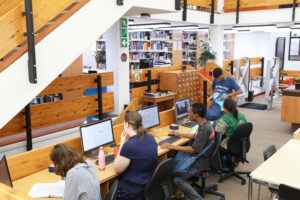 Visitors who qualify for lending privileges may use the
Visitors who qualify for lending privileges may use the  Were you one of our 1 147 clients who “spoke” and completed the Library’s survey last year? Your responses have enabled the Library to identify where we need to improve, as well as where we are doing well. How is the Library responding? Below, we present what “You said” and how “we’re acting”.
Were you one of our 1 147 clients who “spoke” and completed the Library’s survey last year? Your responses have enabled the Library to identify where we need to improve, as well as where we are doing well. How is the Library responding? Below, we present what “You said” and how “we’re acting”.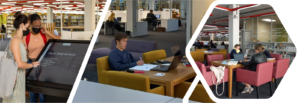 We are pleased to inform all stakeholders of the completion of the SU Library Refurbishment Project. Construction work began in February 2021 and was completed at the beginning of May 2022. The handover of all the spaces to the Library was officially done on 13 May 2022. Save for some snagging, the project is now complete.
We are pleased to inform all stakeholders of the completion of the SU Library Refurbishment Project. Construction work began in February 2021 and was completed at the beginning of May 2022. The handover of all the spaces to the Library was officially done on 13 May 2022. Save for some snagging, the project is now complete.